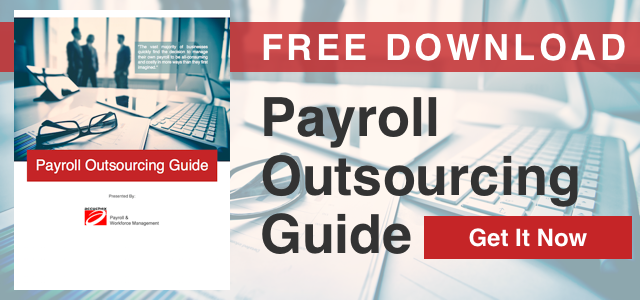 There are numerous CA labor laws and regulations governing the employment relationship. Employers are tasked with understanding these laws and maintaining HR compliance so they can help ensure their organizations avoid costly fines and other penalties.
There are numerous CA labor laws and regulations governing the employment relationship. Employers are tasked with understanding these laws and maintaining HR compliance so they can help ensure their organizations avoid costly fines and other penalties.
In addition, a company's HR professionals are often the buffer between the company and potential harm to the organization’s reputation.
Multi-State Employers Have Greater HR Compliance Concerns
As an employer or HR professional in California, you know that the parade of new CA labor law changes and additions never end. And the task of staying informed and maintaining ongoing compliance are tasks that never end, as well. The truth is that too many businesses overlook or fall behind on the latest labor law requirements.
However, businesses with operations in other states must also be informed of and compliant with the payroll and tax laws of these states, as well.
Significant Minimum Wage Increase in Oregon Will Impact Employers
Oregon Governor Kate Brown signed controversial senate bill on March 2, 2016, that significantly increases Oregon’s minimum wage over the next seven years. With he first increases to take place on July 1, 2016, the ultimate rate hike will be achieved by raising the minimum wage annually on July 1.
Similar to recent wage laws passed in other states, the new Oregon statute is based on regions. The minimum wage rate for an Oregon employee now will be determined by the location of the employer within three separately defined “regions.”
Foe example, employers located in Region 1, known as the Portland Urban Growth Boundary, will see the greatest minimum wage increase over the seven-year period. These employers will be required to pay $14.75 per hour by July 2022.
Also by July 2022, the minimum wage will be $13.50 per hour for Oregon's Region 2 and $12.50 per hour for Region 3.
The rules for determining an employer’s location will be set up by Oregon's Commissioner of the Bureau of Labor and Industries. This will include the minimum wage schedule for employers located within the Portland urban growth boundary.
The new law affects not just workers’ hourly pay owed, but also HR and payroll personnel with posting requirements, and, potentially, commission plans. As a result, all employers with Oregon employees should consult with employment counsel, analyze the new law, and adjust their practices accordingly.
Oregon, like it's neighbor California, has implemented stringent penalties for wage violations, even where unpaid wages are relatively small.
First Ever Income Tax in Alaska?
The Alaska Senate Labor and Commerce Committee planned to hear a bill that would levy a personal income tax on Alaskans, the first in the state's history.
The income tax is one of several tax proposals from Alaska Governor Bill Walker intended to address the state's estimated $3.5 billion budget deficit. Others include higher taxes on motor fuel, fishing, mining and tourism as well as increases in alcohol and cigarette taxes. Walker is also proposing changes to Alaska's oil tax credit program.
In its current form, the personal income tax would be 6 percent of a resident's federal tax liability, or the amount they pay in taxes to the federal government. If their liability is $5,000, they would pay $300 in state taxes.
The measure is expected to generate about $200 million in new revenue for the state.
However, as of Monday, March 14th, Alaska GOP legislative leaders noted that all of Governor Walker’s revenue bills were still in consideration, with the exception, of the income tax legislation.
That measure has not been given a single hearing in the House and it’s gotten just two in the Senate, where it’s still waiting in the first of two referral committees. Its last hearing was February 25.
“You never say never, but I don’t see a lot of support to move that,” said Alaska House Speaker Mike Chenault, R-Nikiski.
You Can Get Expert Help With Labor Law Compliance
Payroll compliance is a labor-intensive requirement of all employers, but it can be achieved and there are scores of resources available for the employer who chooses to manage their own payroll processes. T
Another option to consider is utilizing a managed payroll service. By outsourcing these functions you can also outsource all of the requirements that are currently on your HR staff to maintain compliance. If you have questions regarding this, or other HR issues and practices, let us help you in managing your HR needs, payroll processes, and staying on top of compliance demands.
Get your Free Download: Payroll Outsourcing Guide to help you make an informed decision or call Accuchex Payroll Management Services at 877-422-2824.


